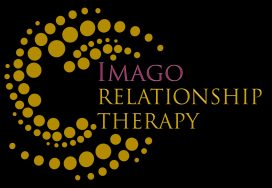Attachment may indeed be the linchpin of relationships. With couples and marriage therapy it quickly becomes evident how securely attached the individuals are and how the relationship operates follows from that.
 As humans, our knowledge and experience of relationships and security of attachment is determined by and large through our early experiences with our parents or significant caregivers. This security is the foundation — at all levels — of our basic ability to trust ourselves, the world and other people.
As humans, our knowledge and experience of relationships and security of attachment is determined by and large through our early experiences with our parents or significant caregivers. This security is the foundation — at all levels — of our basic ability to trust ourselves, the world and other people.
Without a certain level of trust, a balanced, reciprocal, interdependent relationship is impossible! Thus, partners tend to find each other at similar levels of attachment security or insecurity.
With insecurely attached relationships both partners tend to demand changes of each other, both thinking it should be easy for the other, and feeling hurt (which often manifests as anger) when the other doesn’t follow suit.
The changes they are demanding of each other are usually the developmental-type changes or the fulfillment of meeting needs left from childhood. Making those changes requires lots of mutual understanding, empathy, compassion, and trust — all of which are by definition more difficult for insecurely attached partners. Relationships grounded in insecure attachment typically require significantly more work, and often, outside professional help.
When things are going badly in relationships, negative cycles make things worse.
For example, the more I get frustrated or afraid the louder my voice gets, which makes you nervous and quieter, which makes me more frustrated and loud, which makes you pull back more, and so on. This is known in systems terms as “deviation amplifying feedback” or in Imago Relationship Therapy as the reactive survival dance or “Turtle and Alligator dynamic.”
In common terms it’s a vicious cycle. These are patterns of behavior that emerge spontaneously from the interaction between two people. In a sad irony, the more important you are to each other, the easier it is for these cycles to get created and intensify.
Although each person plays a part, the cycle gets created between both of you and in a certain sense takes on a life of its own beyond either one of you.
 These cycles can be especially difficult to understand from the inside. Out of frustration, partners often end up either blaming or criticizing each other, withdrawing into silence, both of which makes everything much worse. Over time these patterns lead to feelings of helplessness and hopelessness. Getting an outside perspective can help you understand how the cycle works, what the dynamics are and how to move from a vicious cycle into a virtuous cycle — more like the good feelings that you had at the beginning of your relationship.
These cycles can be especially difficult to understand from the inside. Out of frustration, partners often end up either blaming or criticizing each other, withdrawing into silence, both of which makes everything much worse. Over time these patterns lead to feelings of helplessness and hopelessness. Getting an outside perspective can help you understand how the cycle works, what the dynamics are and how to move from a vicious cycle into a virtuous cycle — more like the good feelings that you had at the beginning of your relationship.
Empathy and being able to see things from your partner’s perspective are the essentials of a healthy relationship.
If you have kids, empathy is also the key to your children’s emotional health and lifelong well-being. In the end, this is what really makes the difference in all relationships. Empathy flows and creates mental health and well being. Being able to empathize and see things from others’ perspectives is dependent on a foundation of secure attachment. The less securely attached you are, the less safe, secure, and trusting you feel.
If you are fearful, it is hard to trust, hard to be vulnerable, easy to feel persecuted and to either blame your partner or retreat into various forms of withdrawal.
When you are scared and insecure you have less space to: 1) sit with and understand your own feelings, 2) be able to articulate your own feelings to others, and 3) be open to your partner’s feelings and perceptions–especially to the extent they are different from your own.
With the force of our biological imperative, fear prioritizes threat detection as a means of self-preservation. In other words, we are programmed to look for danger. So under conditions of stress and fear we tend to focus on the negative — particularly the negative in our partners!
 This feeds the negative cycles. Fear also narrows our perceptions so that we tend to stereotype the aspects of our partners that we don’t understand or don’t like (which often are the same things).
This feeds the negative cycles. Fear also narrows our perceptions so that we tend to stereotype the aspects of our partners that we don’t understand or don’t like (which often are the same things).
Empathy and perspective-taking work against these forces by expanding our perceptions and giving us a fuller, more realistic, multidimensional view of our partners and their connectedness to us.
Associated with this is an important skill of being able to hold multiple values and points-of-view simultaneously, even when these values and perspectives may be in conflict with each other.
We all have a fundamental conflict or tension between self-preservation and connection with others.
This is another aspect of the fear problem. Again looking at it from a biological/evolutionary perspective there are two critical aspects to continuing the human species: In order to reproduce we must both preserve ourselves as individuals and connect with others in order to conceive and nurture our young. Of course this is a very stripped-down view, but in many ways the feelings and experiences that we have in relationships flow from these two basic drives: connection (come here!) and protection (get away!).
Two competing impulses we are all dealing with in relationships.
We want to merge together and feel the bliss of unbounded connection, warmth and security, but on the other hand we want to be independent, to make our own choices, have our own ideas, explore, and avoid being hurt.
 Language and consciousness add symbolic reasoning, which extends threat beyond the realm of the physical all the way to the abstraction of a single phrase or gesture. Consider the phrases “Fuck you,” or “I’m leaving you.” Even these printed words on the page or text message — can make our hearts beat faster. That’s because they signal threats of aggression, abandonment, or both. This tension between self-preservation and connection is captured in popular titles such as “Do I Need to Give up Me [sacrifice self-preservation] To Be Loved by You [in order to have connection]
Language and consciousness add symbolic reasoning, which extends threat beyond the realm of the physical all the way to the abstraction of a single phrase or gesture. Consider the phrases “Fuck you,” or “I’m leaving you.” Even these printed words on the page or text message — can make our hearts beat faster. That’s because they signal threats of aggression, abandonment, or both. This tension between self-preservation and connection is captured in popular titles such as “Do I Need to Give up Me [sacrifice self-preservation] To Be Loved by You [in order to have connection]
The subtlety of self-preservation can extend all the way to fears of losing or not having influence, agency, identity, or integrity. When relationships start to deteriorate, stress can easily shift the focus to threat and protection and the connection can start to get buried. Finding and maintaining the connection-protection balance is indeed one of the central ongoing challenges of relationship.
Email me or call today and ask about how to balance togetherness and separateness in your relationship. Imagopaula@gmail.com or 401-782-7899.
Blessings on your relational journey.
Paula M. Smith, M.Div., M.A., MFT |Certified Imago Therapist| Marriage & Family Therapist | Author| Spiritual Guide
Office: Hope Artiste Village, 1005 Main St. Suite 1208, Pawtucket, RI. 02860






